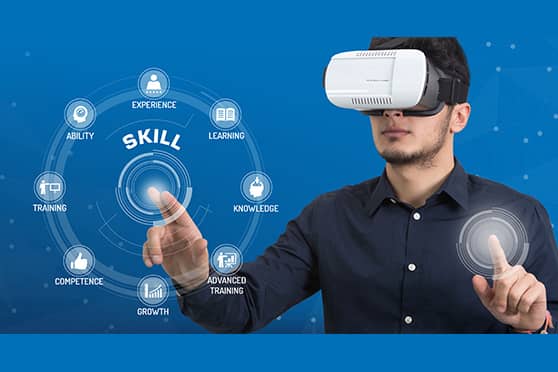IIT Madras and Japanese research firm Monolith will introduce an advanced diploma programme in Virtual Reality


The Indian Institute of Technology (IIT), Madras, and Monolith Research and Training Labs, Japan, are set to launch an advanced diploma programme in Virtual Reality.
The course, to be offered both online and offline, will be open to anyone with an engineering background, including students currently enrolled in engineering degrees anywhere in India. Application forms will be available from November 2021 and the first batch will begin classes from January 2022. The course will have an annual intake of 50 students.
An MoU was signed recently between IIT Madras and Monolith Research and Training Labs, an associate company of Monolith.Asia, a leading Japanese media communication technology company. The signatories were Devendra Jalihal, chairman, Centre for Continuing Education (CCE) - IIT Madras, and Yathirajan Varadharajan, director, Monolith Research and Training Labs.
The course is being coordinated by IIT Madras’s Centre of Excellence on Virtual Reality and Haptics, set up under the Institute of Eminence initiative of the government of India.
M. Manivannan, professor of biomedical engineering in the department of Applied Mechanics, IIT Madras, highlighted the unique aspects of the programme. “Virtual Reality is inherently a practical course. Offering such an experiential and interdisciplinary programme online is quite tough. Both IIT Madras and Monolith have taken this as a challenge,” he said.
The key objective is to serve the increased needs of professionals skilled in Virtual Reality, Augmented Reality, Mixed Reality (XR) and Haptics technology.
“Experiential and immersive technology is rapidly developing and transforming key industries from architecture and engineering to healthcare and media production. Various studies and research papers on immersive technology suggest that it has the potential to boost the global economy by USD 1.5 trillion by adding 23 million jobs globally, including new jobs that do not exist now, or by enhancing the existing jobs by 2030. This economic growth is under threat due to the lack of availability of skilled resources for employers across the globe,” said Varadharajan.
Graduates of this course will have potential job opportunities in sectors ranging from IT, animation, architecture and engineering to healthcare and media production. This advanced diploma programme will be available to students and freshers with at least a bachelor’s degree or working professionals who are aspiring to upskill in immersive technologies.